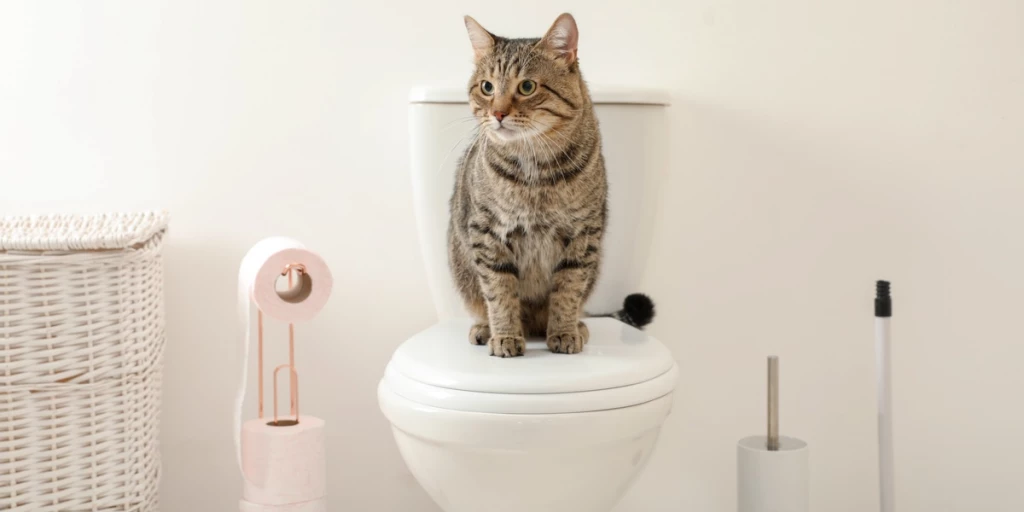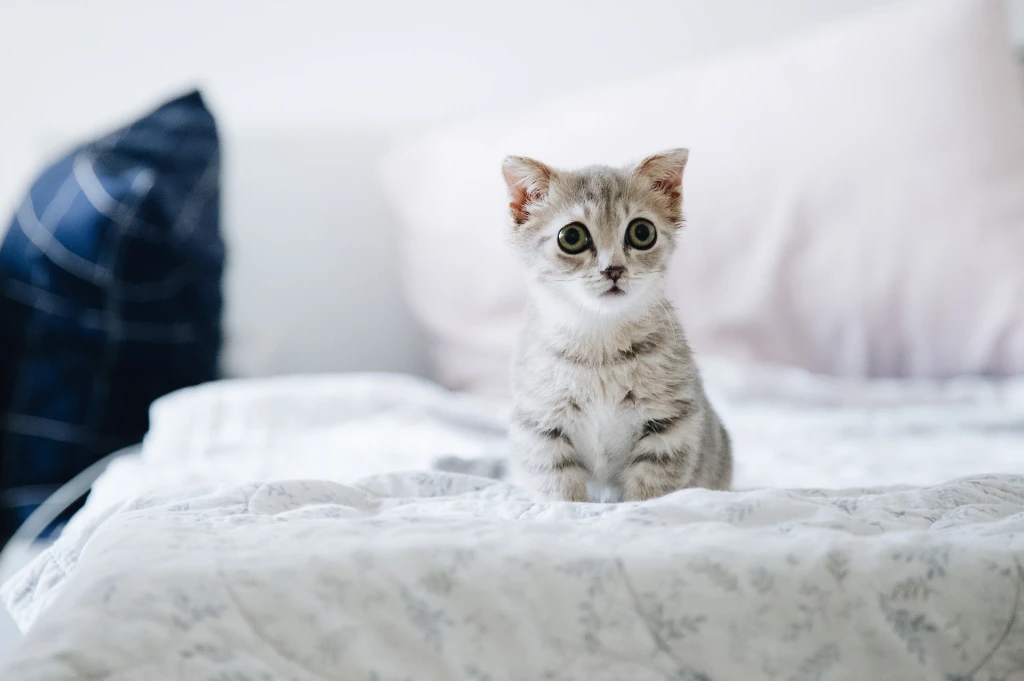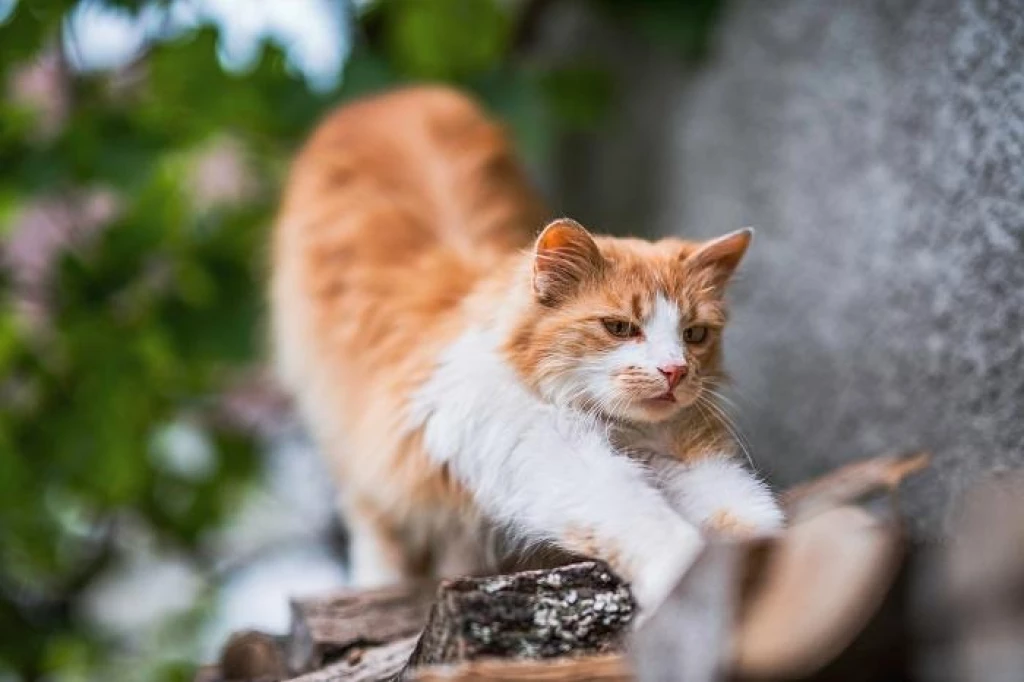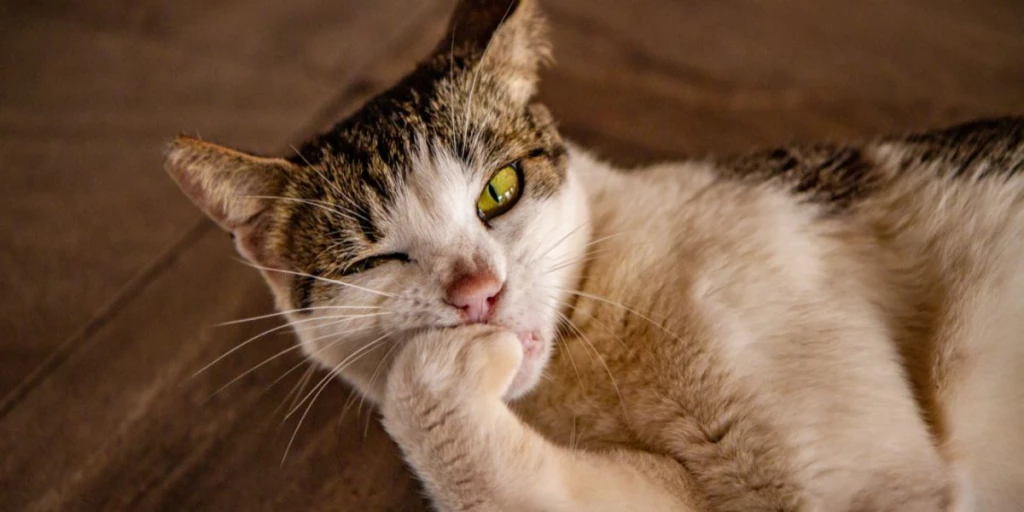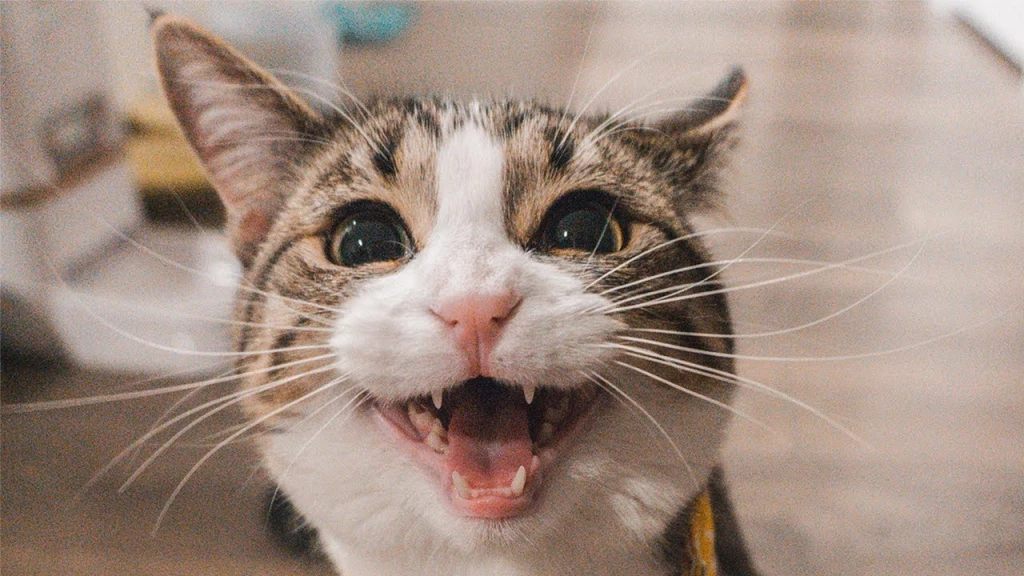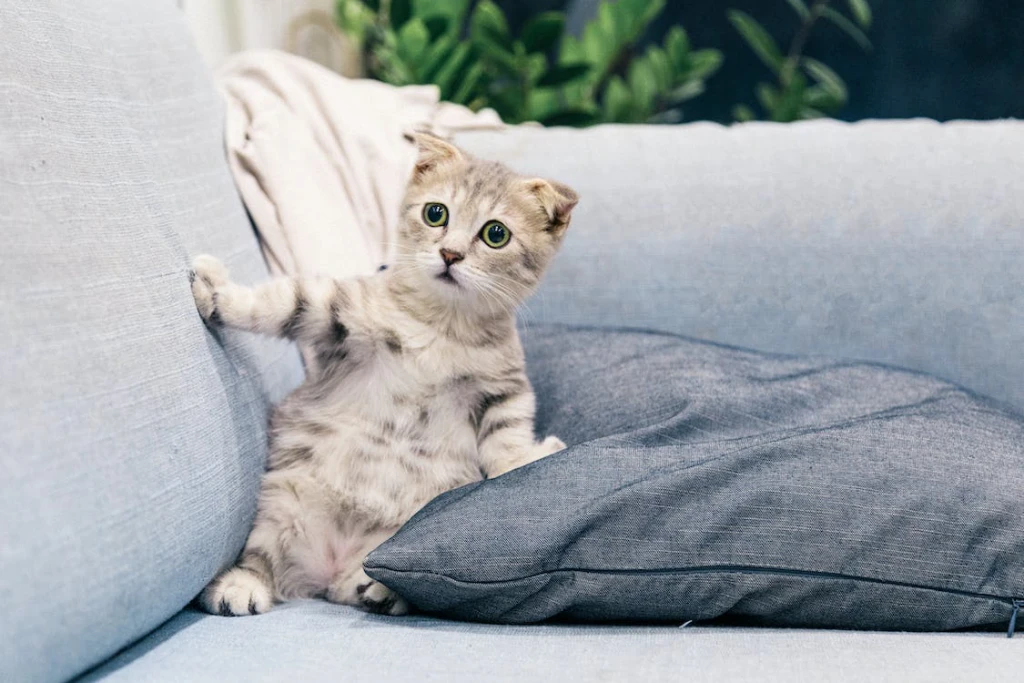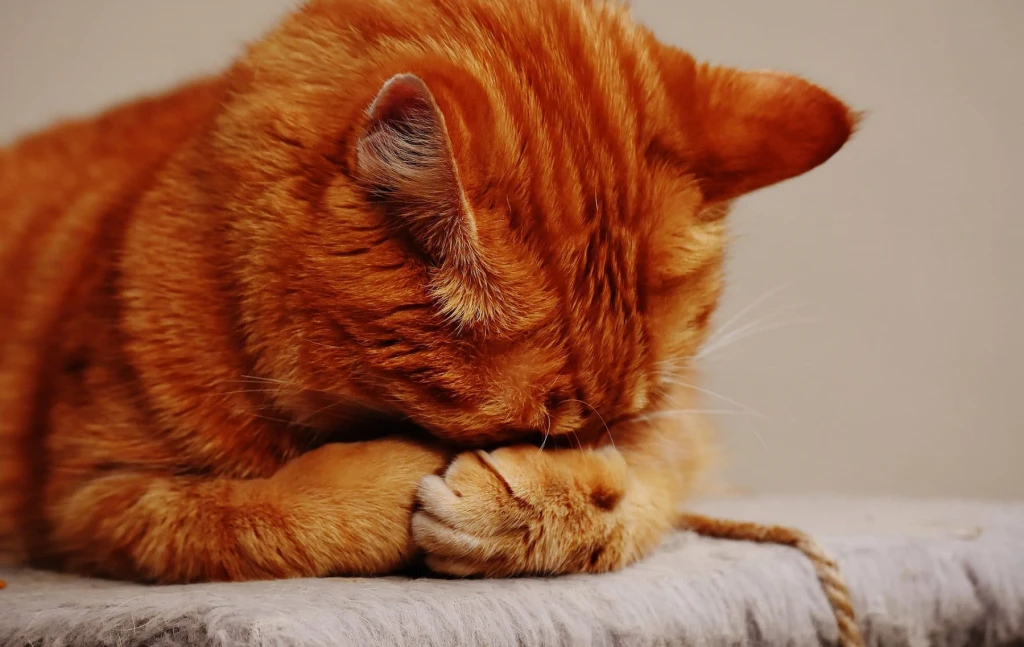Have you ever noticed that your cat follows you to the bathroom and sits outside the door or even joins you inside? Do you wonder why your cat does this and what it means? Is your cat trying to protect you, show you love, or just be nosy?
If you have a cat, you may have experienced this behavior at some point. It may seem funny, cute, or annoying, depending on how you feel about it. But what is the reason behind it? Why does your cat guard you when you pee?
In this blog post, I will explore some of the possible reasons why cats guard their owners when they pee. I will also discuss the pros and cons of letting your cat guard you when you pee, and offer some tips and tricks on how to get some privacy from your cat while you pee.
Whether you enjoy this behavior or not, it is important to understand why your cat does it and how it affects your relationship with them. By doing so, you can make the best decision for yourself and your cat, and enjoy a happy and harmonious coexistence.
Reasons Why Your Cat Guards You When You Pee
If you have a cat, you may have noticed that they sometimes follow you to the bathroom and sit outside the door or even join you inside. You may wonder why your cat does this and what it means. Is your cat trying to protect you, show you love, or just be nosy?
The truth is, there is no definitive answer to why cats guard their owners when they pee. Cats are complex and individual creatures, and they may have different reasons for this behavior. However, some of the most common reasons are:
- Curiosity: Cats are naturally curious and like to explore new things and places. The bathroom may be a fascinating place for them, with all the sounds, smells, and objects. They may want to see what you are doing in there and if there is anything interesting for them to play with or investigate.
- Affection: Cats may also follow you to the bathroom because they love you and want to be near you. Cats have different ways of showing affection than dogs, and one of them is guarding you when you pee. This may be a sign of trust and loyalty, as they are keeping an eye on you and making sure you are safe and comfortable.
- Protection: Cats may also guard you when you pee because they feel it is their duty to protect you from potential danger. Cats are territorial animals, and they may view the bathroom as part of their domain. They may also think that you are vulnerable or scared when you pee, as they may be when they do it themselves. They may want to defend you from any intruders or threats that may come your way.
- Territory: Cats may also guard you when you pee because they are claiming you as theirs. Cats use scent marking to establish their territory and communicate with other cats. They may rub their cheeks, spray urine, or scratch surfaces to leave their scent behind. They may also do this to you, as you are part of their territory and family. They may follow you to the bathroom to make sure no other cats or animals try to take over their space or steal their human.
- Comfort: Cats may also guard you when you pee because they find the bathroom a cozy and relaxing place to be. The bathroom may be warm, quiet, and comfortable for them, especially if there is a mat, towel, or bed for them to lie on. They may also enjoy the sound of running water or the smell of your shampoo or soap. They may follow you to the bathroom to enjoy some quality time with you and themselves.
As you can see, there are many possible reasons why your cat guards you when you pee. The best way to find out why your cat does this is to observe their behavior and body language. Are they relaxed, playful, attentive, or anxious? Do they purr, meow, hiss, or growl? Do they rub against you, lick you, bite you, or scratch you? These clues may help you understand what your cat is trying to tell you.
Whatever the reason, your cat guarding you when you pee is not something to worry about. It is a normal and natural behavior for cats, and it shows that they care about you and your relationship with them. However, if this behavior becomes excessive or problematic for you or your cat, there are some things you can do to discourage it or cope with it.
For example, you can make sure your cat has enough water, toys, and attention in other parts of the house. You can also close the door and ignore your cat when you pee, or distract them with a treat or a toy. You can also check with your vet if your cat has any physical or mental health issues that may cause them to guard you when you pee. By understanding and respecting your cat’s needs and preferences, you can enjoy a happy and harmonious relationship with them.
Should I Allow My Cat to Guard Me When I Pee?
If your cat guards you when you pee, you may wonder if you should allow this behavior or not. The answer depends on how you and your cat feel about it. There are some benefits and drawbacks of letting your cat guard you when you pee, and you should weigh them carefully before making a decision. Here are some of the pros and cons of this behavior:
- The benefits of letting your cat guard you when you pee: One of the main benefits of letting your cat guard you when you pee is that it may strengthen your bond with them. Your cat may see this as a way of showing their affection and trust for you, and you may appreciate their company and loyalty. Another benefit is that it may make your cat feel more secure and happy, as they may enjoy being near you and hearing the sound of running water. A third benefit is that it may provide your cat with mental stimulation and entertainment, as they may find the bathroom a fascinating place to explore and play.
- The drawbacks of letting your cat guard you when you pee: One of the main drawbacks of letting your cat guard you when you pee is that it may interfere with your privacy and comfort. You may not like having your cat watch you or sit on your lap while you pee, or having them scratch or meow at the door if you close it. Another drawback is that it may encourage unwanted behaviors in your cat, such as scratching or spraying the bathroom furniture or walls, or trying to drink from the toilet bowl or sink. A third drawback is that it may create potential health risks for you or your cat, such as spreading germs or infections, or causing urinary tract problems.
As you can see, there are some advantages and disadvantages of letting your cat guard you when you pee. The best way to decide whether to allow this behavior or not is to consider how it affects you and your cat's well-being and happiness. If you and your cat enjoy this behavior and it does not cause any harm or trouble, then there is no reason to stop it. However, if this behavior bothers you or your cat or causes any problems or risks, then you may want to discourage it or cope with it in a different way.
How to Get Some Privacy From Your Cat While I Pee?
If you want to get some privacy from your cat while you pee, there are some tips and tricks you can try to discourage them from guarding you or cope with their behavior. Here are some of the things you can do:
- Make sure there are no physical problems: Sometimes, cats may guard their owners when they pee because they have underlying medical issues that make them thirsty or anxious. For example, they may have kidney disease, diabetes, urinary tract infection, or hyperthyroidism. These conditions may cause them to drink more water, urinate more frequently, or feel stressed or uncomfortable. If you notice any signs of illness in your cat, such as excessive drinking or urinating, weight loss or gain, vomiting or diarrhea, lethargy or agitation, etc., you should consult your vet and get them treated as soon as possible. This may help reduce their need or desire to guard you when you pee.
- Make sure your cat isn't overly anxious or stressed: Sometimes, cats may guard their owners when they pee because they suffer from separation anxiety or stress due to changes in their environment or routine. For example, they may have moved to a new home, welcomed a new family member or pet, lost a companion, or experienced a traumatic event. These situations may make them feel insecure or fearful and cling to their owners for comfort and reassurance. If you think your cat is anxious or stressed, you should try to reduce their stress levels and make them feel more relaxed and confident. You can do this by providing them with a safe and quiet space for them to retreat to, maintaining a consistent schedule for feeding and playing with them, using calming products such as pheromones or supplements, or consulting a behaviorist or a vet for more advice.
- Give your cat attention in other parts of the house: Sometimes, cats may guard their owners when they pee because they crave attention and interaction. They may think that the bathroom is the only place where they can get your undivided attention and affection. If you want to discourage this behavior, you should try to give your cat attention in other parts of the house where they can enjoy your company without invading your privacy. You can do this by playing with them, grooming them, talking to them, cuddling with them, etc., in the living room, bedroom, kitchen, or any other place where you and your cat feel comfortable and happy.
- Close the door and ignore your cat: Sometimes, cats may guard their owners when they pee because they have learned that it gets them what they want. They may have realized that by following you to the bathroom or scratching or meowing at the door, they can get you to open the door, let them in, pet them, talk to them, etc. If you want to break this habit, you should try to close the door and ignore your cat when you pee. You can do this by using a lock or a wedge to prevent them from opening the door, wearing headphones or earplugs to block out their noise, distracting them with a treat or a toy before you go to the bathroom, or simply not responding to their demands or complaints. By doing this consistently, you may teach your cat that guarding you when you pee does not work and that they should leave you alone.
- Reward your cat for leaving you alone: Sometimes, cats may guard their owners when they pee because they don't know any better. They may think that this is what you want or expect from them, or that this is how they should behave. If you want to teach your cat a different behavior, you should try to reward them for leaving you alone when you pee. You can do this by praising them, petting them, giving them a treat or a toy, or playing with them after you finish peeing and come out of the bathroom. By doing this consistently, you may teach your cat that leaving you alone when you pee is more rewarding and enjoyable than guarding you.
Conclusion
In this blog post, I have explained some of the possible reasons why cats guard their owners when they pee. I have also discussed the benefits and drawbacks of letting your cat guard you when you pee, and offered some tips and tricks on how to get some privacy from your cat while you pee.
As you can see, there is no definitive answer to why cats guard their owners when they pee. Cats are complex and individual creatures, and they may have different reasons for this behavior. The best way to find out why your cat does this is to observe their behavior and body language, and consider how it affects you and your cat's well-being and happiness.
If you and your cat enjoy this behavior and it does not cause any harm or trouble, then there is no reason to stop it. However, if this behavior bothers you or your cat or causes any problems or risks, then you may want to discourage it or cope with it in a different way.
Whatever the reason, your cat guarding you when you pee is not something to worry about. It is a normal and natural behavior for cats, and it shows that they care about you and your relationship with them. By understanding and respecting your cat's needs and preferences, you can enjoy a happy and harmonious relationship with them.
I hope you found this blog post informative and helpful. If you did, please share it with your friends and family who have cats or are interested in cats. Thank you for reading!
